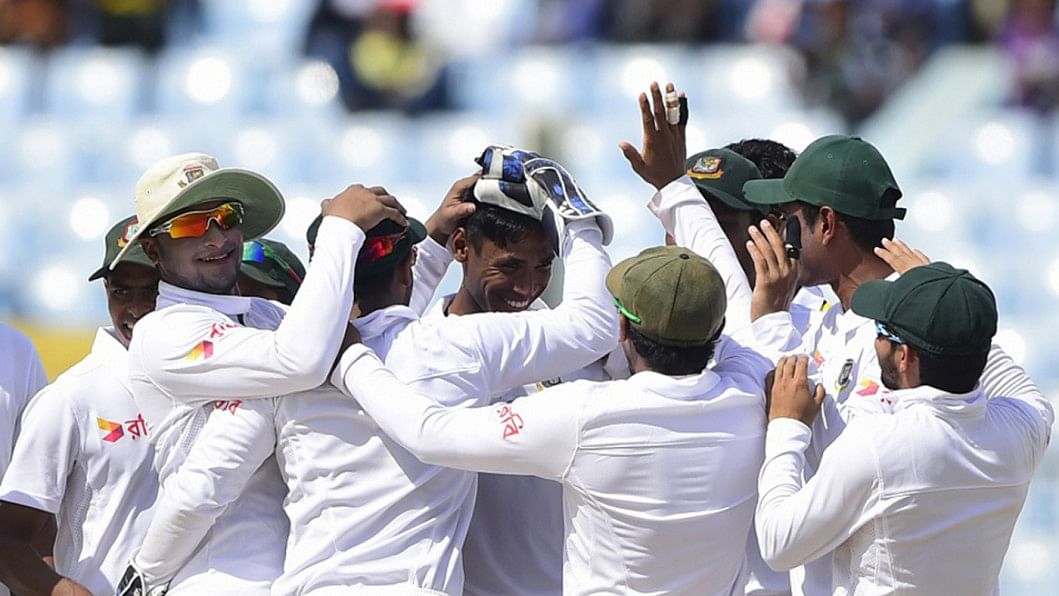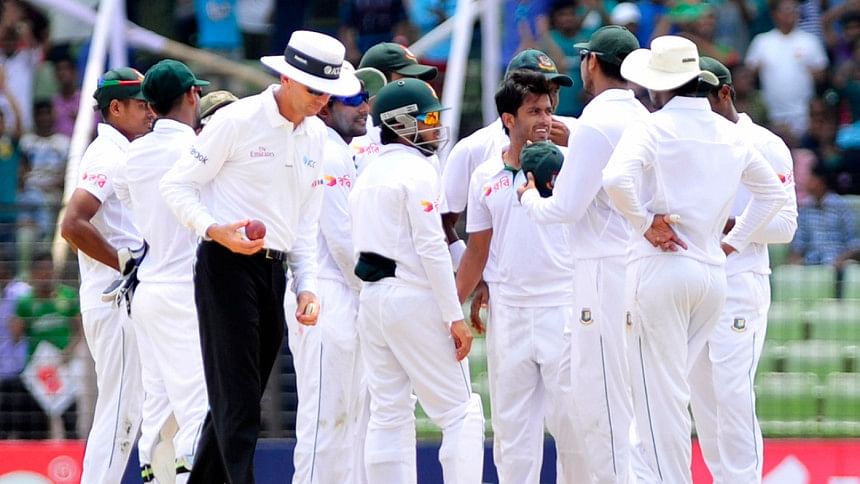BCB shifts focus away from Tests again

The BCB's plan to lop off one Test match from the series against Zimbabwe is consistent with its policy of limiting the team to one particular format ahead of a major tournament.
The recent resolution, however, goes against Bangladesh cricket's historical mandate, which, since 2000, was to give Test cricket utmost priority.
History will have to take a back seat for now. In a bid to prepare the team for the 2016 World T20, the BCB believes it will be "realistic" to give the players more recovery time in January and February next year, as they head into a schedule of continuous T20s from mid-February.
After the two Tests, three ODIs and three T20Is against Zimbabwe, Bangladesh will play in the Asia Cup, now converted to the T20 format as it is being played just before the World T20. In these two tournaments, Bangladesh are likely to play at least 11 T20Is in the space of three weeks.
Before the T20 congestion in March and April of 2016, they will also play T20s for an entire month from November 25, in the Bangladesh Premier League, their domestic T20 tournament.
Playing a long T20 tournament a few months before the World T20 makes a lot of sense in terms of getting into the groove of the format.
In addition, the changed format of the Asia Cup from ODIs to T20s, will also help preparation for a side that lacks experience, skills and success in T20s.
But the sacrifice is looking much greater than the purpose. While on the outside it is only a loss of a single game of cricket, for Bangladesh playing a three-match series is a rare occasion, a big deal and makes a statement to the rest of the cricket world.
They have played three-Test series on three occasions, in 2003, 2007 and 2014, but according to the new tour programme formulated last year, they have eight three-match series scheduled till 2022, six of them against Zimbabwe, and two against New Zealand.
Bangladesh have already played the first of these eight series, against Zimbabwe late last year, but to cut the second of those series to two Tests makes BCB's long-term Test planning look regressive. It looks particularly bad during Bangladesh's best run of form in international cricket.
But this isn't the first time that the BCB has sacrificed Tests for another format. In 2010 they postponed two home Tests against New Zealand so that they could prepare for the 2011 World Cup by playing more ODIs.
They played three additional ODIs against New Zealand and won the series 4-0, but it hardly paid dividends to their World Cup outcome as they made a first-round exit. Although the Test series was initially only postponed, it was never held later on.
In their first 15 years as a Test playing nation, Bangladesh have refused to play the format twice, despite being regularly questioned about their position in the top ten Test ranking.
Also, they have a developing side in the format which needs more matches to become a stronger unit, as opposed to the progress they have made in the ODI arena over the last five years.
The current reluctance is allegedly due to player recovery and pace bowlers' fitness issues but the mindset has changed over the last five years due to the lack of Test wins, which has led to a lack of interest from other boards when they negotiate tours with the BCB.
They have had more success in ODIs while their distance from T20 success, financially and on the field, has also led to a bit of apathy towards Test cricket.

The sacrifice this time around is also of two ODIs as the series was initially scheduled to have five ODIs. For a team that has been doing so well in ODIs in 2015, playing their next ODI after six months seems like an unhinged programme, and then to have two ODIs reduced gives them very little time to be mentally prepared for the format and that too for a shortened series.
BCB's cricket operations committee chairman Naimur Rahman argued that the pace bowlers' injuries have made them concerned about playing more than two Tests.
His admission is accurate but at the same time, it also reveals how some of the young pace bowlers are shaping their careers towards the limited-overs format.
They have been concerned about preparing for and playing Test cricket due to the frequency of injuries as well as lack of recognition.
Bangladesh cricket now has a big enough pool to rotate pace bowlers within three Tests and five ODIs. If the need is to rest senior players like Shakib Al Hasan, Tamim Iqbal, Mushfiqur Rahim and Mahmudullah, who play all three formats, it could have been done quite smoothly against Zimbabwe.
But a couple of facts are clouding the view of the decision makers.
Firstly, Bangladesh's continued success in ODIs may have swayed some into thinking that shorter formats are where there's more chance of success.
Secondly, the hype that surrounds an ICC event - like what happened at the 2015 World Cup - is enough to suggest that a good showing in a big event can make life easier in Bangladesh cricket.
And thirdly, the stress laid on particular formats depending on the upcoming ICC events, and not the others.
Bangladesh tried to play more T20s ahead of the 2012 and 2014 World T20s but none of those ICC events yielded expected results.
The bust of the home World T20 last year should also be kept in mind, as it did seem the players felt a lot of pressure playing in the tournament whose format they have not yet mastered.
Bangladesh cricket has always had to adjust to the ways of new decision-makers who come up with their own ideas, effective or otherwise.
But they have often been disconnected with the past of Bangladesh cricket and what it stood for. Here, too, the decision seems to do more with immediate success rather than long-term goal-setting, which certainly involves a lot more Test cricket.

 For all latest news, follow The Daily Star's Google News channel.
For all latest news, follow The Daily Star's Google News channel. 



Comments